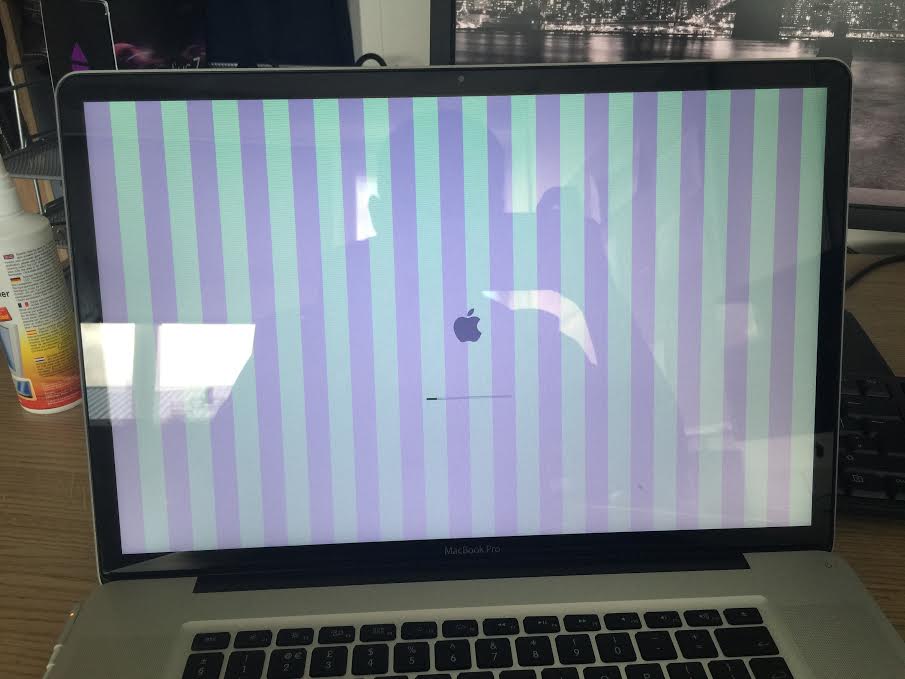Owners Of MacBooks With Self-Destructing Video Cards File Class-Action Lawsuit

These pink and white stripes are not pretty.
The computers in question in this case are 15- and 17-inch MacBook Pro machines manufactured and sold in 2011. The price of these computers started around $1,800 at the time. Users claim that the discrete graphics card, which handles the more graphics-intensive tasks that most people in the market for a lunch tray-sized Macbook use their computers for, is defective. The lawsuit argues that some users had problems with their computers from the very beginning. The problem is that the computers’ three-year-long extended warranties are expiring, but the computers are still in use and still defective.
The lawyers argue that since Apple actually recalled some MacBooks made in 2008 for a similar issue, the company would have known that their original solution of a software patch was insufficient.
The graphical issues and system failures with the 2011 MacBook Pro Laptops were nearly identical to problems that plagued the 2008 MacBook Pro laptops, which were eventually recalled. Yet rather than issuing a recall for the 2011 MacBook Pro Laptops, Apple hurriedly release a software patch intended to address graphical stability in the 2011 MacBook Pros. The software patch was ineffective because, as Apple knew from its experience with the 2008 MacBook Pro Laptops, the defect at issue is physical and cannot be fixed with a software patch.
Class actions rarely lead to a quick resolution. For example, lawsuits against the company over various self-destructing power adapters for notebook computers led to cash settlements or replacement adapters for customers…two years after the suit was filed.
In this lawsuit, the lead plaintiffs ask Apple to reassess past warranty claims for affected computers, reimbursing users for any repairs that they paid for out of pocket. If any computers belonging to class members are found to be beyond repair, they ask Apple to replace them.
Book et al. v. Apple, Inc. [Lawsuit] (PDF Download – via MacRumors)
Want more consumer news? Visit our parent organization, Consumer Reports, for the latest on scams, recalls, and other consumer issues.

